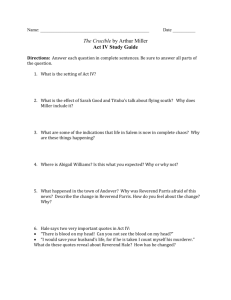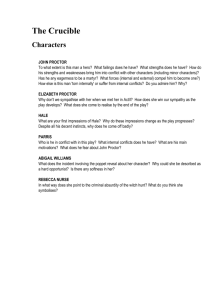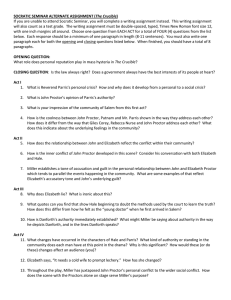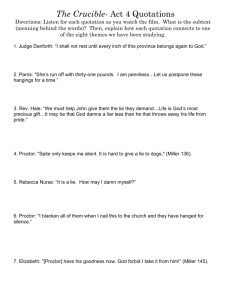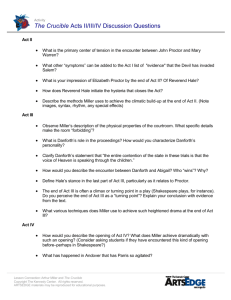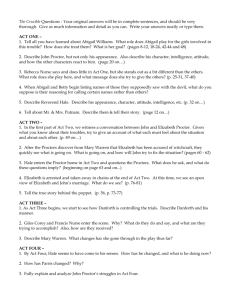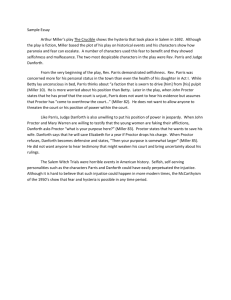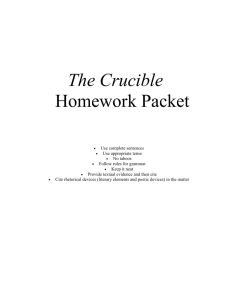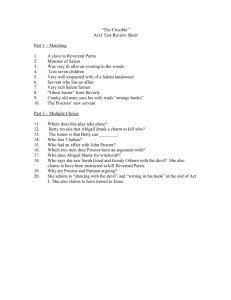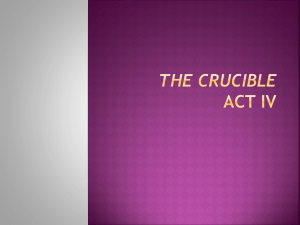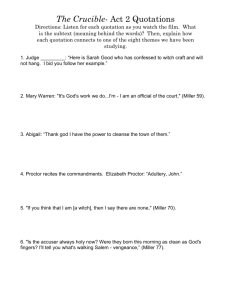The Crucible, Act IV: Discussion Questions 1. What is Miller's
advertisement
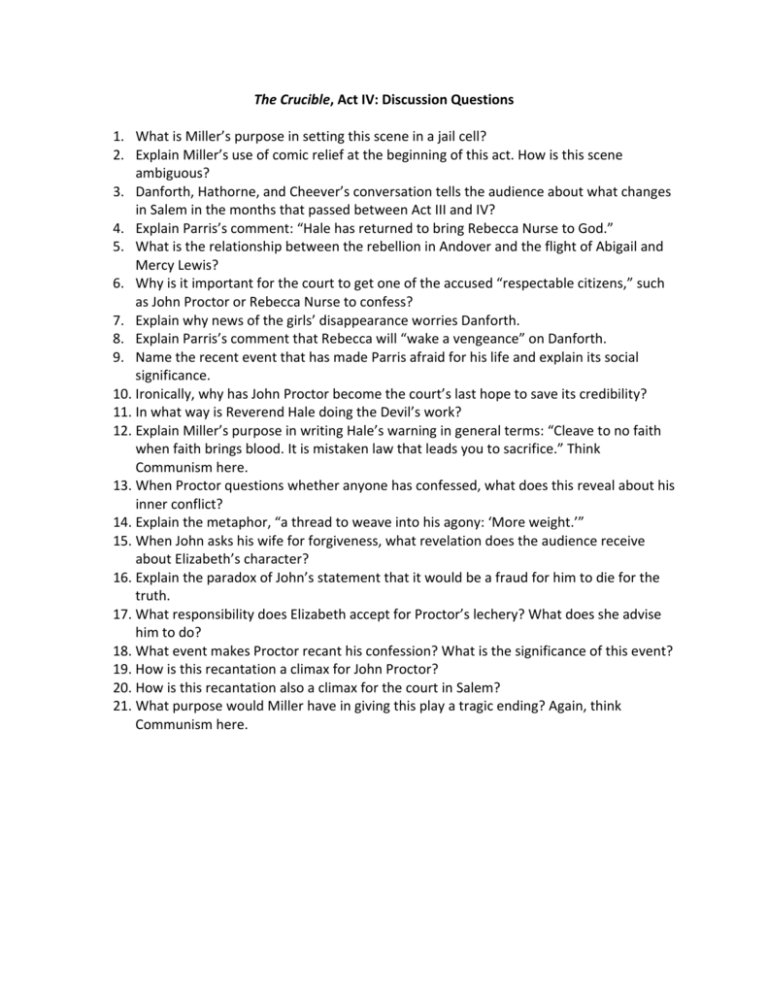
The Crucible, Act IV: Discussion Questions 1. What is Miller’s purpose in setting this scene in a jail cell? 2. Explain Miller’s use of comic relief at the beginning of this act. How is this scene ambiguous? 3. Danforth, Hathorne, and Cheever’s conversation tells the audience about what changes in Salem in the months that passed between Act III and IV? 4. Explain Parris’s comment: “Hale has returned to bring Rebecca Nurse to God.” 5. What is the relationship between the rebellion in Andover and the flight of Abigail and Mercy Lewis? 6. Why is it important for the court to get one of the accused “respectable citizens,” such as John Proctor or Rebecca Nurse to confess? 7. Explain why news of the girls’ disappearance worries Danforth. 8. Explain Parris’s comment that Rebecca will “wake a vengeance” on Danforth. 9. Name the recent event that has made Parris afraid for his life and explain its social significance. 10. Ironically, why has John Proctor become the court’s last hope to save its credibility? 11. In what way is Reverend Hale doing the Devil’s work? 12. Explain Miller’s purpose in writing Hale’s warning in general terms: “Cleave to no faith when faith brings blood. It is mistaken law that leads you to sacrifice.” Think Communism here. 13. When Proctor questions whether anyone has confessed, what does this reveal about his inner conflict? 14. Explain the metaphor, “a thread to weave into his agony: ‘More weight.’” 15. When John asks his wife for forgiveness, what revelation does the audience receive about Elizabeth’s character? 16. Explain the paradox of John’s statement that it would be a fraud for him to die for the truth. 17. What responsibility does Elizabeth accept for Proctor’s lechery? What does she advise him to do? 18. What event makes Proctor recant his confession? What is the significance of this event? 19. How is this recantation a climax for John Proctor? 20. How is this recantation also a climax for the court in Salem? 21. What purpose would Miller have in giving this play a tragic ending? Again, think Communism here.
